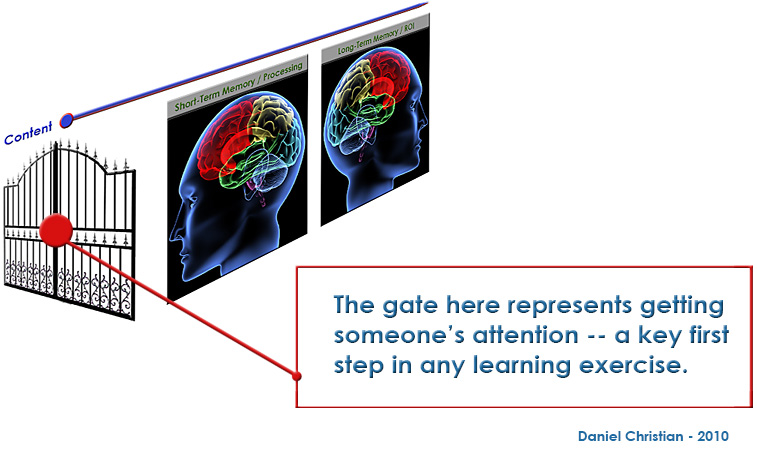The future belongs to the curious: How are we bringing curiosity into school? — from User Generated Education by Jackie Gerstein
Excerpt:
A recent research study found a connection between curiosity and deep learning:
The study revealed three major findings. First, as expected, when people were highly curious to find out the answer to a question, they were better at learning that information. More surprising, however, was that once their curiosity was aroused, they showed better learning of entirely unrelated information that they encountered but were not necessarily curious about. Curiosity may put the brain in a state that allows it to learn and retain any kind of information, like a vortex that sucks in what you are motivated to learn, and also everything around it. Second, the investigators found that when curiosity is stimulated, there is increased activity in the brain circuit related to reward. Third, when curiosity motivated learning, there was increased activity in the hippocampus, a brain region that is important for forming new memories, as well as increased interactions between the hippocampus and the reward circuit. (How curiosity changes the brain to enhance learning)

From DSC:
Jackie’s posting reminded me of what Daniel Willingham asserts: “Memory is the residue of thought.” | “We remember what we think about.”
So to me, if you can’t get through the gate — get someone’s attention — you have zero chance of getting into their short-term memory, and thus zero chance to get into that person’s long-term memory.

Along these lines, if a student is curious about something, their motivation level increases and they actually THINK about something. (What a concept, right?!)
But the point here is that what a student thinks about now has a chance to make it into that student’s memories…thus, creating a variety of hooks on which to “hang future hats” (i.e., make cognitive connections in the future).

Addendum on 11/24/15:
- Asking “Why?” Instead of “How?” — from er.educause.edu by Jack Suess
Thoughts from EDUCAUSE 2015
[Re: Emily Pilloton, founder and executive director of Project H Design] Her talk focused on three aspects of learning:
- Seeking > Knowing. Pushing beyond your comfort zone is the way to challenge yourself. As mentioned above, Pilloton believes in experiential learning, in challenging students with big projects where they will learn new skills as needed to complete the project.
- We > I. Teams and building trust in your teammates is critical. All of Pilloton’s projects are so big that no one person can complete them alone. By being forced to make decisions and learn to work as teams, group members realize that as a collective, they can achieve much more than they could individually.
- Curiosity > Passion. Encouraging curiosity is more important than helping people find their passion. Pilloton argued that it is hard for many young people to know their passion. If we encourage curiosity and give students the opportunity to push the boundaries of what they think is possible, we provide them the opportunity to both build confidence and find their passion.









Fantastic! This is exactly why a lot of teachers should focus on, well, teaching instead of assessing. Provided the teacher is genuinely interesting, or interested in the subject himself, it’s bound to get students hooked, wouldn’t you agree?
Yes, John, I agree. It seems like the evaluations I’ve seen often mention the enthusiasm of the teacher/professor and how captivated they themselves are in the subject. If they can pique someone’s curiosity, all the better I say. Cramming for tests won’t have the same lasting effect/impact as the deep learning that can come from a curious mind.
Thanks John,
Daniel
It sure wouldn’t, Daniel. I guess it might also be an “environmental” factor, where some kids just don’t want to learn, so they have to make them with such ways. Maybe this is where gamification should come into play.
Thanks again John for the comments here. Your thoughts here remind me of a posting I just put on the blog today:
The teacher is not the most important factor when it comes to learning — from theinnovativeeducator.blogspot.ch by Lisa Nielsen
http://theinnovativeeducator.blogspot.ch/2015/11/the-teacher-is-not-most-important.html
Check out the table with the headings:
We would stop…
We would start…
Result…
Daniel